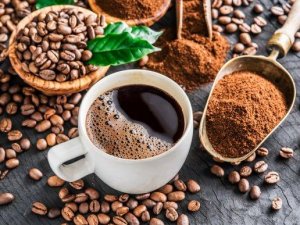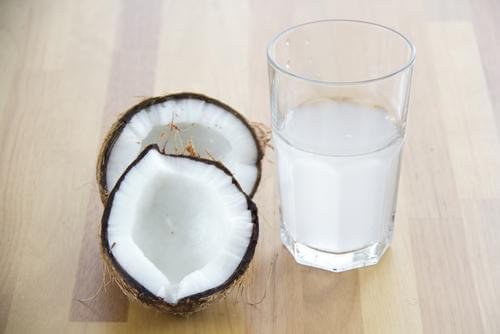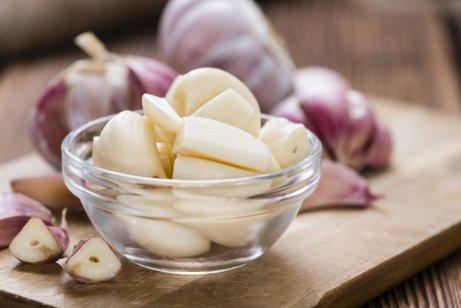Home Remedies for Caffeine Withdrawal

Coffee affects the brain because it produces a sensation of constant alert due to the fact that it stimulates the central nervous system. Cutting caffeinated beverages from your diet can lead to caffeine withdrawal, which can cause drowsiness, irritability, headache, difficulty concentrating, and a tendency towards depression.
In this article, we’ll share some good remedies that will help you deal with this issue.
The Benefits of Cutting Coffee

Coffee-related withdrawal can cause irritability and headaches, among other symptoms.
However, drinking less caffeine is beneficial in many ways. For example, cutting coffee from your diet can lead to weight loss because caffeinated beverages have empty calories and promote fat accumulation.
Also, it can reduce acid reflux. Coffee’s acidity is associated with digestive upset, indigestion, and intestinal flora imbalance. In addition, your stress levels may reduce because caffeine increases catecholamines such as adrenaline. These are stress-related hormones.
Discover: 7 Coffee Facts Everyone Should Know
The Best Home Remedies for Caffeine Withdrawal
To stop consuming coffee without suffering the unpleasant consequences of withdrawal, we recommended to gradually reduce the amount of caffeine you ingest by 25%. This way, you’ll be able to gradually reduce your intake until you stop drinking it completely.
As a bonus, you can try out the following home remedies to overcome your addiction quickly.
1. Coconut water

Coconut water can help with caffeine withdrawal.
This is a nutritious and very healthy drink. It contains enzymes that help cleanse the body, as well as electrolytes that boost energy and replenish nutrients.
Also, it helps prevent body and mind slowness, allowing you to stay energized. It also fights the fatigue caused by caffeine withdrawal.
The consumption of coconut water has very similar effects to that of a sports drink in terms of hydration and causes less nausea, discomfort, and bloating.
2. Prebiotic beverages
These drinks promote intestinal flora growth, improving your digestive health. They stimulate the immune system to rid the body of toxins and also fight the symptoms of caffeine withdrawal. Similarly, they help clear the intestines of residue.
Two good examples are yogurt and soy milk. There are also nutritional supplements with prebiotics that have the same benefits.
3. Ginger tea
Renowned for its distinctive aroma and spicy flavor, ginger tea is a natural remedy that boosts digestion, helping the body decompose food faster. One of its benefits is that it boosts blood sugar regulation. Therefore, in addition to controlling glucose, it keeps you alert for long periods of time.
It also produces regular bowel movements, thus reducing your risk of diarrhea caused by caffeine. Another benefit is that it reduces memory problems and improves mood.
4. Peppermint tea
Peppermint is very beneficial for the body. When it comes to caffeine withdrawal, peppermint tea can help relieve nausea, headaches, and stress.
Its regular consumption relieves tension and unrest since it produces a state of relaxation, helping to calm the mind when it’s agitated or slow. A good option is to drink a cup of peppermint tea when you feel the effects of caffeine withdrawal.
Did you know? How Much Coffee Should You Have Daily?
5. Garlic tea

Garlic tea can help control caffeine withdrawal.
Recognized for being an excellent natural antibiotic, people consume garlic tea to reduce their risk of colds and strengthen their immune system. What few people know is that it also fights caffeine withdrawal since it induces a feeling of calm.
Like prebiotic drinks, garlic tea facilitates more natural bowel movements and rids the body of toxins that can cause illnesses.
Drink it twice a week and you’ll see results in no time.
6. Chamomile tea
Chamomile is an herb native to Western Europe that’s characterized by its aroma and slightly bitter taste. It has many physical health benefits due to its digestive, carminative, sedative, and antispasmodic properties.
Chamomile tea relieves stress and anxiety. Therefore, it’s perfect for caffeine withdrawal because it regulates high energy levels.
All cited sources were thoroughly reviewed by our team to ensure their quality, reliability, currency, and validity. The bibliography of this article was considered reliable and of academic or scientific accuracy.
- Lozano, R. P., García, Y. A., Tafalla, D. B., & Farré Albaladejo, M. (2007). Cafeína: Un nutriente, un fármaco, o una droga de abuso. Adicciones. https://doi.org/10.1021/acs.jced.6b00578
- Napoleón Fernández. (2009). El efecto diurético y estimulante de la cafeína. Retrieved December 6, 2018, from https://www.diariofemenino.com/dieta/alimentacion-deportiva/articulos/efecto-diuretico-estimulante-cafeina/
- Antonio Fàbrega. (n.d.). 18 beneficios del jengibre para tu cuerpo y tu salud. Retrieved December 6, 2018, from https://psicologiaymente.com/nutricion/beneficios-jengibre-salud
This text is provided for informational purposes only and does not replace consultation with a professional. If in doubt, consult your specialist.








